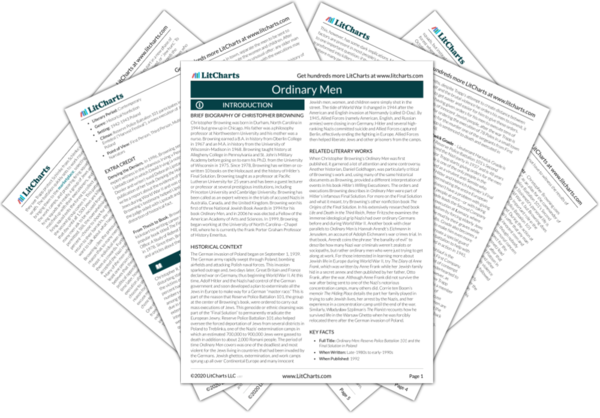It is easy to understand why so many men ask to be excused from the firing squads within the first several rounds of executions—being faced with their victim or actually committing at least one execution is very traumatic. The most interesting case here is the man who couldn’t go on shooting after meeting a German Jew. As Browning explained earlier, the men had been taught to consider Jews a foreign threat to German identity. However, the Jew that the man meets
is German—how can this person be both German
and an enemy of Germany? This is a question the men will have to face several times during their time in Poland.
